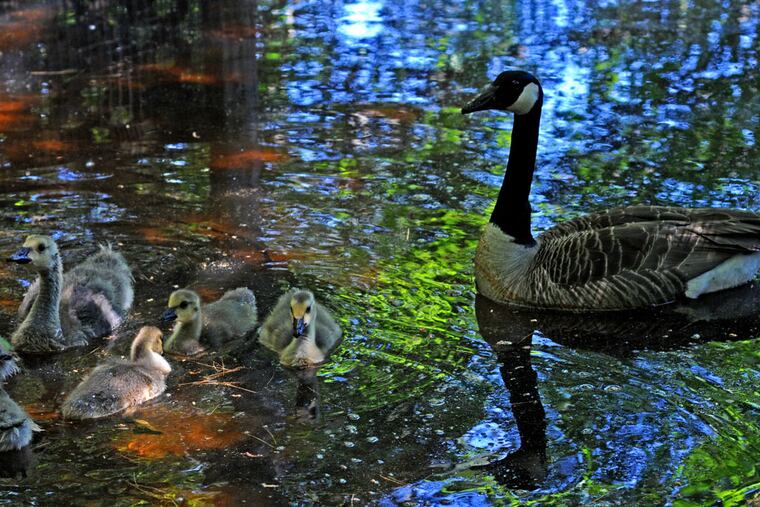South Jersey wildlife refuge struggling to stay open as COVID-19 hits finances
The coronavirus pandemic has forced a sharp downturn in visitors to the Woodford Cedar Run Wildlife Refuge, cutting off $100,000 in revenue. And now the sprawling refuge in Medford, Burlington County, may have to cease most operations.

For nearly seven decades, the Woodford Cedar Run Wildlife Refuge has cared for injured and orphaned animals — from squirrels to owls — at its South Jersey compound, and has returned many to their natural habitats.
But the coronavirus pandemic has forced a sharp downturn in visitors, cutting off $100,000 in revenue. And now the sprawling refuge in Medford, Burlington County, which takes in 5,100 animals annually, may have to cease most operations.
The nonprofit has closed its nature center, eliminated three positions, laid off 22 part-time employees, and reduced its $720,000 annual budget, according to its executive director, Dennis Miranda. With recent donations of about $80,000, it can remain open for about three months, he said.
Medford Township denied a request for a $100,000 donation from its $3.4 million Open Space, Recreation, Farmland and Historic Preservation Trust Fund, Miranda said. The refuge has launched an online fundraising campaign and asked supporters to lobby township officials to reconsider.
Mayor Chuck Watson said the township’s solicitor determined that the refuge is ineligible for money from the fund, which is targeted toward acquiring, preserving, or maintaining open land. About $731,000 is collected annually through a tax levy, and the township has plans for that money, he said.
“It’s a great facility that’s been around for a long time, and we certainly appreciate what they do,” Watson said. “We certainly wish them well.”
Miranda said the refuge largely relies on donations from members, corporations, and foundations, and fees from public visits and school trips, which were halted with the shutdown of schools.
”We can’t keep living paycheck to paycheck,” Miranda said. “We are fighting for our survival.”
The refuge was founded in 1951 by John and Elizabeth Woodford, who purchased the 171 acres for $5,000, said their daughter, Jeanne Woodford, a retired Moorestown special education teacher. In 1998, she donated most of the wooded acres off Sawmill Road for the refuge, and the state paid $900,000 to preserve the land under the Green Acres program.
”People told my parents, ‘You’re crazy to live out there in the sticks,’“ she said.
Today, the refuge is among the oldest conservation groups in the 1.1-million-acre Pinelands National Reserve. Its wildlife hospital, the largest in the state, treats animals native to New Jersey.
Cedar Run, surrounded by a seven-acre lake, is a popular field trip site that attracts about 20,000 schoolchildren annually. The Refuge on Wheels Program takes animals and artifacts to schools.
When the refuge had hard times in the past, Woodford said, her parents would put up funds to keep it running. Both died in the 1990s, she said.
”It’s very disappointing, what is happening now,” said Woodford.
Miranda said the hospital remains open round the clock to accept injured and orphaned animals. In order to practice safe social distancing, the staff no longer meets with finders. A drop-off area with linens and heating pads has been set up in front of the hospital, he said.
The public can still take self-guided tours of hiking trails and visit the nature center, which houses nearly 60 animals unable to be returned to the wild. They include a great horned owl, named Bubba by the refuge; a red-tailed hawk named Aldora; and a new arrival, a striped skunk named Phoebe.
Without more funding, Miranda said, the refuge may have no other option but to consider “the unthinkable” — euthanizing the animals who live at the refuge.
“This isn’t a petting zoo,” he said. “No one is going to take in an injured bald eagle.”
People who wish to drop off injured animals may call 856-983-3329, Ext. 107 or visit www.cedarrun.org.